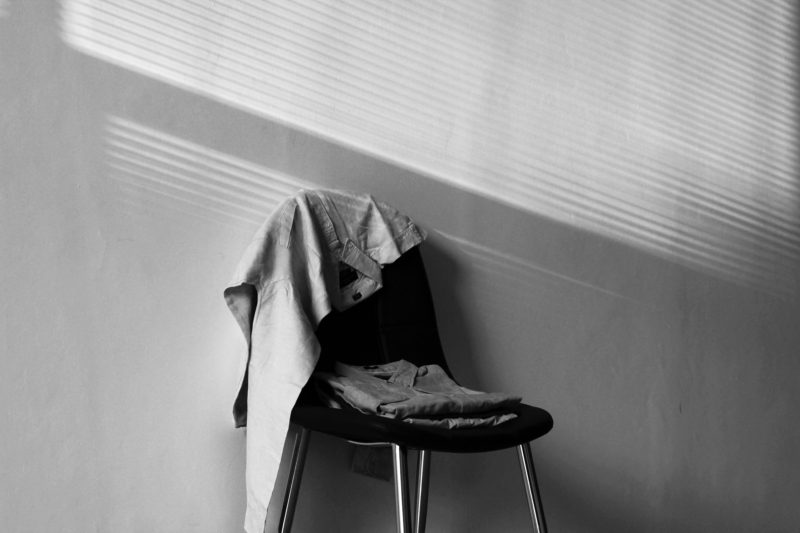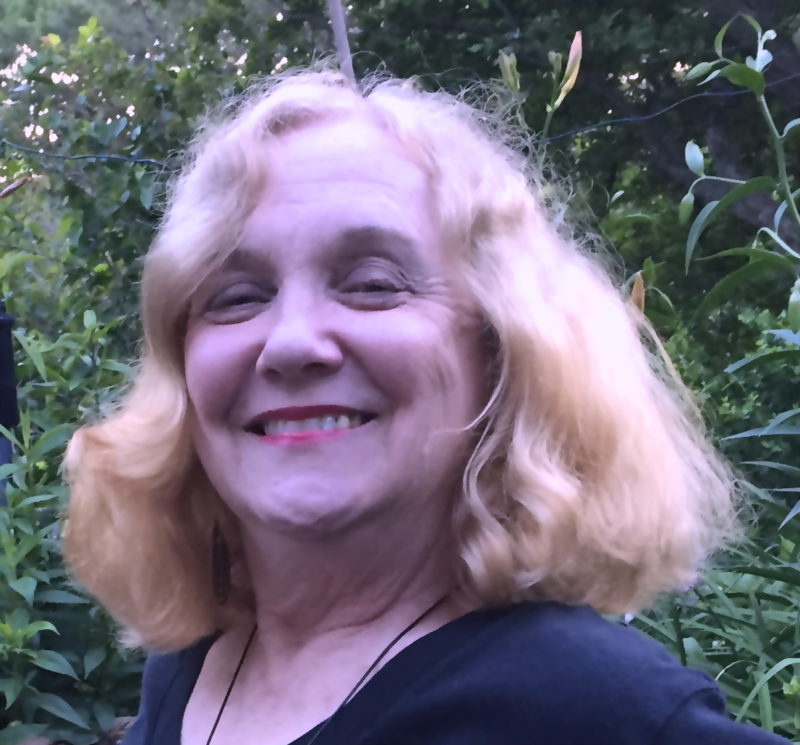
My agent calls. He never calls. He says Gordon wants to see me tomorrow in his office. Gordon is the show’s writer, producer, creative genius. He never talks to us actors, hardly ever comes by the set. My agent says, too cryptically for my blood, Gordon wants to see me at 11 am. Gordon never gets up before noon. His writers are instructed to bring him coffee and a bagel at 2. Call me after the meeting my agent says before he hangs up.
This is not good, but maybe I saw it coming. My character, Frankie, though roughcut, had redeeming qualities in the first three seasons of LITTLE NAPOLI—loyal, iron-willed, snappy dresser. But these qualities were shot to hell when I, Frankie, carried out last month’s cold-blooded murder. When we got the script for that episode, I gave it the usual fast run-through hoping Frankie would see a little sex or gambling, maybe a scene with the skinny tailor from the old country, but there it was:
Frankie hides in men’s room stall. Pasco enters and unzips at the urinal. Frankie exits stall. Pasco whirls around. Frankie shoots Pasco point blank between the eyes. Frankie exits.
I immediately called my agent. “You got to talk to Gordon. Why do I have to kill Pasco? Why can’t I carve a fish in his chest, cut off a thumb, shoot his kneecaps to smithereens? Why does Pasco have to die?” Jesus, Pasco was like family. LITTLE NAPOLI was his family. Real life has let us down. At fifty-five, I have three divorces behind me, trailing four grown smart-ass kids I never see. Pasco and the rest of the cast are my family. All that Italian shit—homemade vino, men hugging each other, piles of tens, twenties in neat stacks under florescent lights in someone’s basement.
Killing Pasco. Yeah, it was a rhetorical question.
“Gordon must have thought the show needed a murder,” my agent says. “Didn’t Pasco snitch on the big goombah?”
“We had a murder three episodes ago,” I say.
“But it was some minor character killing another minor character. You know Pasco’s murder is big enough to take the story in a new direction.”
“Yeah, I kill him, then what. What about me?”
Silence. Then my agent says, “What does the script call for?”
I tell him it says, “Frankie shoots Pasco point blank between the eyes. “
My agent says, “I see what you mean. You’re talking about your future. I guess you’re going to have to wait to see what the next script says. It ain’t real life.”
So, two days later I clock in at the studio for filming that episode and head over to make-up. Last season my Frankie got into a knife fight that left a scar over his right eye that always takes extra time. That scar feels like a badge. Sometimes, when I wipe off the makeup I leave it on and wear it out drinking with the cast. That day, “Pasco” gives me a thumbs up to show there’s no hard feelings. He’s young. He’ll get more parts. “Let’s have a beer – after I die,” he says, “after you kill me while I’m taking a piss.” He sticks his hips out and pretends to pull his zipper down for practice. We both laugh, knowing that an hour later as the cameras roll he will die—twice. That’s how it’s known in the industry.
Minutes later we’re on set–the men’s room of a sleazy bar. The door says WC. A flickering bulb is about to go out. Pasco is facing one of two stained urinals. The audience knows that Pasco’s been making gruesome dire threats to my Frankie. I emerge from a stall. I fire my gun point blank at Pasco. Point blank, just like the script says and he dies a messy death. Special FX people goop up the mirror good behind Pasco’s shattered skull, red streaks on the urinal, blood snaking downhill to the drain. I step over his body. Before I exit, I look in the bloody mirror and run my hands over my hair to smooth it down, a gesture that came to me out of the blue in season 2, one I was told that Gordon loved.
At the end of the shoot the show runner doesn’t look us in the eye, though most of the cast ends up hitting Grazie’s Pub for a beer with Pasco and me. We don’t talk story much. Don’t keep in touch with actors killed off: accidents, medical situations, or outright murdered—all the victims of the Gordon’s concept of story. Mostly we avoid wondering what will come next, except tonight I have the nagging suspicion that what my Frankie did will have consequences for Frankie’s longevity. Pasco was the goombah’s pet even if he was a snitch.
It was two weeks later when my agent called. I can tell he thinks it’s bad, too.
Next morning I’m in Gordon’s office at 11. His bagel arrived before me and is half gone. I picture how Pasco had to walk into this same room three weeks ago. I feel queasy.
As always, Gordon is stone-faced. His hair is fried a bright gold. His manicure is perfect as he pats the next episode’s script sitting on his desk. It doesn’t help to recall that he got out of bed early to say what he’s going to say. Sagging into an Eames chair, I think go on. Say it.
No small talk. He lifts up the script, says, “You probably know that after Frankie shot Pasco point blank last month that your Frankie has it coming. “
I sputter and whine. “Pasco didn’t have to die.”
“Sam, Sam,” Gordon says, holding up his hand. “We all know getting written out of a series is every actor’s nightmare. But the public’s hearts bled for Pasco. He was going to be the father of twin boys. They weren’t his, but he didn’t know it. Check the tweets. Hearts are bleeding for him.”
I remember the casting call for twins, new babies, went out two weeks ago. “You could have let Pasco live to hold them,” I say, though it’s too late.
“Hey, Sam, you were great while you were great,” Gordon says. “Great when you were good. Great when you were bad.” He leans forward, his writer’s brain sizzling under his fried hair. “But in last Friday’s episode I had to let your true nature show, your deceiving black heart, your bloodlust for the wrong women and hatred for the men they love.”
Jesus, he sounds like a trailer for one of his scripts.
He throws the next episode’s script—for sure it’s my last– into my lap like a Frisbee. “Be happy. Your death got class,” he says. He stands. I stand. I act like a mensch, but I’m acting. He waves me out of his office. Meeting over.
I speed-read the script in a Starbucks down the street. I text my agent the bad news. Then, I take the script and my Frankie to Grazie’s Pub for Jack on the rocks.
In LITTLE NAPOLI’s last episode of the season, I am ambushed as I exit the burnished, carved doors of an upscale Italian restaurant. Who the fuck needs “burnished.” The script says white table cloths glow in the background. Candlelight wavers in the puddle on the street. Script says: Frankie exits door. Pulls on leather gloves. Looks to right. Looks to left where killer is in dark shadows. Frankie says, “No. Not you.” Two shots. Frankie slouches back against the door. Dies.
I die. No messy gore like Pasco’s murder, just a red blossom growing on Frankie’s Chesterfield coat. Cut.
I have to admire Gordon. The ambush is a great hook. Who killed Frankie will be revealed in LITTLE NAPOLI’S Season 4. They’ll use old footage for any necessary flashbacks. There it is. That’s how Frankie dies. Before I die, waiting, hoping to get written into my future as someone else.

PAMELA PAINTER is the author of four story collections, most recently Ways to Spend the Night. She is co-author of What If? Writing Exercises for Fiction Writers. Her stories have appeared in Harper’s, Five Points, Kenyon Review, Missouri Review, and Ploughshares among others and in numerous flash fiction anthologies. She has received grants from The Massachusetts Artists Foundation and the National Endowment of the Arts, has won three Pushcart Prizes and Agni Review’s The John Cheever Award for Fiction.





